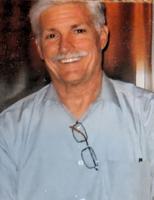Article 13 of the Russian constitution promises political pluralism. Article 29 guarantees freedom of speech. It is a brave citizen who insists on those rights.
Although Russia will hold a presidential election at the end of this week, the result is a foregone conclusion. Vladimir Putin will win comfortably. The spirit of post-Soviet democratization is all but dead. The flame is kept alive by a courageous few.
Thousands turned out at the Moscow funeral of Alexei Navalny, the jailed opposition leader generally assumed to have been murdered by order of the Kremlin. There were chants calling for “Russia without Putin”. That is high-risk activity. Open dissent against the regime is punishable by fines and prison sentences. OVD-Info, a human rights group, has catalogued hundreds of detentions in dozens of cities after vigils in honour of Mr Navalny.
It has been the largest show of opposition since the invasion of Ukraine, but the numbers are not huge for a country of 144 million. What the majority of Russians think about their president and his war is opaque. Opinion polls show majorities in favour of both, but it is hard to conduct accurate surveys in a climate where deviation from the official line is legally proscribed.
Independent analysts say the picture is nuanced – a spectrum of sentiment with ideological pro-Kremlin conviction shading into looser patriotic sympathy with the army and then degrees of apathy, low-level discontent, grim resignation, despair and a kernel of committed anti-regime activists.
Mr Putin’s position is secured by brute force and cultivated disbelief that any alternative is viable. He achieves this by eliminating rivals and propagating a personality cult that depicts Russia as the target of a foreign dismemberment plot and himself as the only person able to hold the country together. This speaks to a deep-rooted national anxiety about the Motherland unravelling in chaos. Something like that happened recently enough for older generations in particular to see democracy as a risk not worth taking.
This week’s election is not meant to fool anyone into thinking that Russians have a choice. It is a ritual affirmation of incumbent power, a pastiche of democracy to demoralise those who dream of peaceful regime change. But even the pretence of a ballot gives the opposition something to rally around. Yulia Navalnaya, the murdered dissident’s widow, has called for anti-Putin voters to converge on polling stations at midday on Sunday even if they don’t intend to vote. The point is to be visible. The authorities can hardly ban such gatherings when they are laying on the election.
These are wholly symbolic gestures, but that doesn’t mean they are futile. Russians who dare to speak up for democracy, and those who silently crave the end of Mr Putin, need reminding that they are not alone. There is a role also for those outside Russia who can amplify voices of courage and hope. There are jailed opposition figures – Ilya Yashin and Vladimir Kara-Murza – at risk of suffering the same fate as Mr Navalny. The more conspicuous their plight, the harder it is for Mr Putin to pretend his is the only vision of Russian politics.
The freedoms that are promised in Russia’s constitution feel remote today, as this week’s election will sadly demonstrate. But it will show also that the spirit of opposition cannot be extinguished.
The Guardian
















Commented
Sorry, there are no recent results for popular commented articles.